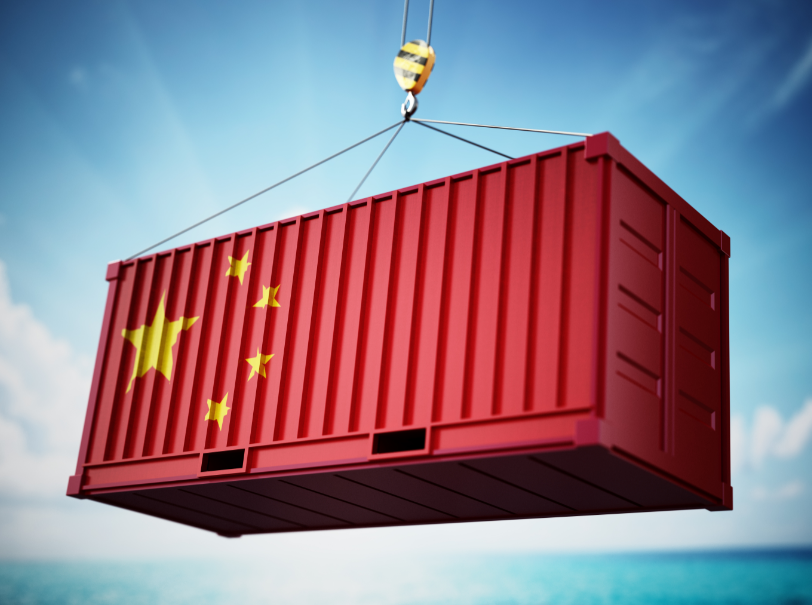
In the latest of the IOE&IT Daily Update’s round-up of China trade news, we cover the news that the world’s second largest economy underperformed in May, a thawing of relations between the US and China and Beijing’s improved relationships with Saudia Arabia.
China growth falters
Several leading global banks have cut their 2023 GDP growth forecasts for China after May data showed its post-COVID recovery was faltering.
Nomura cut its 2023 forecast for China’s GDP growth to 5.1% from 5.5%, following similar moves by UBS, Standard Chartered, Bank of America and JPMorgan, reports Reuters.
The banks’ economists all expect China’s GDP growth to be between 5.1% and 5.7% this year, down from an earlier range of 5.5% to 6.3%.
Data showed China’s industrial output and retail sales growth missed forecasts in May.
Although consumers are spending, buyers are shunning property, which has been one of China’s biggest growth drivers.
Exports also fell by 7.5% year-on-year in US dollar terms last month, after rising 8.5% in April as slower growth abroad hit demand, reports the FT.
Stimulus planned
A raft of interventions is expected from Beijing as the government seeks to jump start the economy.
The People’s Bank of China cut its key one-year, medium-term loan facility rate for first time in 10 months, after it lowered its seven-day reverse repurchase rate on Monday. Many economists are expecting the PBOC to cut its loan prime rate this week, reports CNBC.
Unemployment among young people hit a fresh record high in May at 20.8% and economists have said getting them back to work would give a huge economic boost, as they account for almost 20% of consumption in China.
According to the FT, Chinese state planners are set to respond with a swath of tax breaks and hints at more loans for small businesses.
Ting Lu, chief China economist at Nomura, said China would need stronger action than tinkering with rate cuts.
“The real reason for the weak growth now is not high interest rates. It’s more about confidence about the future,” he said.
However, few expect China to radically alter course from its cautious Covid-era approach, despite this being what many believe the economy needs.
US-China
US Secretary of State Antony Blinken met Chinese president Xi Jinping in Beijing this weekend to try and make headway on the long list of disputes between the US and China.
Blinken is the first secretary of state to visit in five years, reports Reuters.
Despite tensions in pre-meeting phone calls, US officials hope the visit will pave the way for more bilateral trade meetings in coming months, and may even set the stage for meetings between Xi and president Biden later in the year.
The US and China are at odds over issues ranging from trade and microchips to human rights, and Taiwan. A spy balloon over the US in February also heightened tensions.
Taiwanese iPhone maker Foxconn is looking to redraw some of its supply chains as it navigates icy Washington-Beijing relations.
Foxconn chairman Young Liu told the BBC, it must prepare for the worst and said “business continuity planning” was already under way with some production lines already being moved from China to Mexico and Vietnam.
According to the FT, Astra Zeneca is considering splitting off it’s Chinese arm and listing it in Hong Kong or Shanghai as a result of recent geopolitical tensions and the threat of future sanctions.
Semiconductors block
CNBC discussed the challenges China is facing now that the US market for chips used by artificial intelligence software is ramping up.
The US has blocked exports of these powerful semiconductors to China, weakening Chinese trade, whcih has fallen behind Mexico and Canada in recent trade figures.
SCMP reports that trade in semiconductors between China and South Korea continued to decline in May, as China is sharpening its focus on improving self-sufficiency in so-called legacy chips, such as those used in cars and home appliances, in the face of US export restrictions.
Foreign policy
As the world’s largest energy consumer, China has an ongoing strategic need for strong ties with oil-producing economies. According to Reuters, such practical concerns explain recent expressions of economic and political friendship between China and Saudi Arabia.
At a recent Arab-China business conference, Saudi energy minister, Prince Abdulaziz bin Salman highlighted that the strategic benefits of closer ties with Beijing outweighed any nervousness or negativity from the West. Asked about Western criticism of its stance towards China, he said
“I actually ignore it because ... as a business person you will go where opportunity comes your way."
Bloomberg reports that, Saudi Arabia– as well as Iran and others – is keen to join China in the informal group of nations called BRICS (Brazil, Russia, India, China and South Africa).
Initially a term coined by economist former Goldman Sachs chief economist Jim O’Neill, it has now developed into a real-world forum for economic co-operation between the nations and even has its own development bank.



